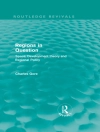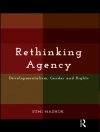Order your digital inspection copy here.
Sharp and focused, this book provides the need-to-know information on how to design and implement a good, high quality research project.
Oriented around real-world application, it emphasizes the aspects of research most relevant to conducting practice-based research. Assuming no prior knowledge, but appropriate for experienced learners, it builds knowledge at a sustainable pace.
It offers readers:
– A no frills guide to methodology and the theory of conducting research
– Strategies for communicating complex ideas
– Insight into common impact-driven methods like action research, case study, and mixed methods
– Ways to develop systematic research projects within the boundaries of everyday working life
– Ample opportunities to test and apply newfound knowledge.
With streamlined advice tailored specifically to support research in professional contexts, this book is the essential toolkit every researcher who is embarking on a practice-led project needs.
Mục lục
Introduction – Carol Costley and John Fulton
Part I: Underlying Principles
Chapter 1: Philosophy and Practice – why does this matter? – Tom Maxwell
Key definitions
Modes 1 and 2 knowledge production
An important philosophical thread
Implications
Conclusion
Chapter 2: Research Approaches in Professional Doctorates; notes on an epistemology of practice – Carol Costley
Introduction
Different forms of knowledge have led to epistemic changes
The modern application of practice-based research approaches
Towards an epistemology of practice
Chapter 3: Why Policy Matters Particularly in Professional Doctorates – Pam Burnard, Tatjana Dragovic, Rebecca Heaton and Barry Rogers
Introduction
The imperative of why policy matters to the researching professional
On setting parameters that lead to policy analysis and change
So, how should researching professionals go about policy analysis?
Methodologies for connecting professional doctorates and policy/ies
Driving professional and wider changes in society: doing the doctorate differently
Conclusion – So what for professional doctorate education?
Chapter 4: Reflective Models and Frameworks in Practice – Jan Fook
Introduction
Reflection and its relationship to research
The concept of reflection and related concepts
Reflection and reflexivity
An integrated understanding and practical model of critical reflection
Reflection and practice-based research
Different ways in which reflection can be used in research
Issues for further discussion
Criteria for making decisions about how to use reflection in research
Chapter 5: Ethics – John Fulton and Carol Costley
A Brief History of Ethics and Philosophical Principles
Translating the principles into the research design
Practice-based Research
Issues to consider in Practice-based Research
Part II: Methodological Frameworks
Chapter 6: Methodology as Personal and Professional Integrity: Research Designing for Practitioner Doctorates – Kate Maguire
Introduction
The context
Personal and Professional Integrity
Disentangling paradigms, methodologies, approaches and methods
Knowledge
The simplicity of an approach
Beginning research designing: conceptualising your practice in order to conceptualise and theorise practice
Forms of conceptualisation
Transparency
Research designing: influences to consider
Your design
Help with clarifying an attitude to the workworld to achieve what matters
Embracing Complexity
Chapter 7: Alternative Dissertation Models: The Development of Modern Capstone Design – Valerie A. Storey
Setting the Stage
What Characterises a PD Dissertation?
Extending the Dissertation Spectrum
The Challenge: Alternative Dissertation Formats
The Carnegie Project on the Education Doctorate (CPED)
Alternative Models: Active Ingredients
Conclusion and Recommendations
Chapter 8: Auto-Ethnography – Kath Woodward
Range and Scope of Auto-ethnography
Auto-ethnography
Theories, Methodologies and Methods
Chapter 9: Action Research – Gill Coleman
Introduction
Insider Researchers
Characteristics
An “extended” epistemology
First, Second and Third-person Action Research
Putting it into practice
Quality/Validity
Conclusion: challenges and strengths
Chapter 10: Case Study – Catherine Hayes
Introduction
What is the philosophical stance?
What is the extent and range of the case study?
Using Case Study Research in the Context of a Professional Doctorate
Theory Building with Case Study Research Data
Chapter 11: Mixed Methods – David Plowright
Introduction
The Challenge
Mixed Methods Research
The Fra IM: A Brief Description
Warrantability of Research
Integrated Matrix
Finally
Chapter 12: Translational Research in Practice Development – John Fulton
Types of knowledge
How do you know that research can be applied to practice?
Roles in Translational Research
The Process of Translational Research
Conclusion
Chapter 13: Theory of Change: The Real Thing and How to Design Successful Social Change Projects – Heléne Clark
Basic Components of a Theory of Change
Basic Definition of Theory of Change
Theory: Each Component Defined
Three Basic Purposes and Times for Theory of Change
Using A Theory of Change in Practice
Snapshot of the Process of Creating a Theory of Change
Tips on Success in Creating a Theory of Change
Conclusion
Giới thiệu về tác giả
Dr. John Fulton is reader in Practice-Based Research within the Faculty of Health Sciences and wellbeing. He has a career of more than 25 years in the education of health professionals. He has an interest in work-based learning and methodological approaches which shape and direct the development of practice. He is co-author of a textbook on the professional doctorate and leads the research methods module of the professional doctorate program. He is also the program leader for the MSc in Public Health and as such is/has been involved in a number of research projects in public health, with particular focus on the wider determinates of health both nationally and globally.












